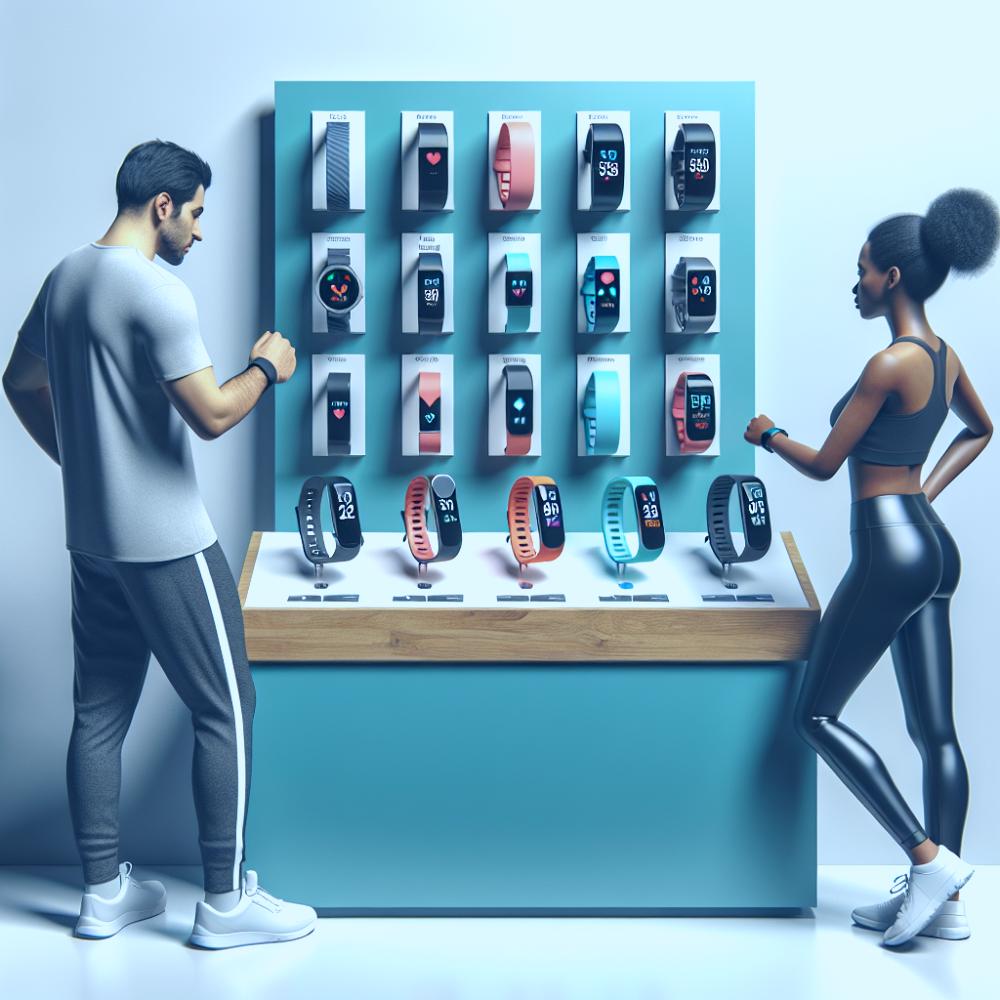Choosing the Perfect Fitness Tracker: Your Guide to Smart Wearable Technology
- Wearable-tech
- By Johnny Van Cooler aka Gangsta Tech-freeky

Yo, OGs! Choosing the Right Fitness Tracker: The Gangsta Guide
Hey there, my legendary ancestors! Ready to dive into the world of fitness tech? I'm your megasuperblogger, here to break it down for you, gangster style. Let's get you up to speed with the coolest, most fly fitness trackers out there!
Why Modern Fitness Trackers Are Da Bomb
Back in the day, you might have had a pocket watch and a good ol' pedometer. But times have changed, and now we have gadgets that can do everything except make you a cup of coffee (well, some can even do that!). Let's see why these modern marvels are way better than the old-school gizmos.
1. Heart Rate Monitoring
No more guessing games! Modern fitness trackers have heart rate monitors that keep track of your ticker all day and night. It's like having a personal doctor on your wrist.
2. Sleep Tracking
Ever wondered if you're getting enough shut-eye? These trackers can tell you how well you're sleeping and even give you tips to catch more Z's.
3. GPS and Location Tracking
Remember getting lost on your morning jog? Not anymore! With built-in GPS, these trackers can map your routes and make sure you never lose your way.
4. Steps and Activity Levels
Counting steps is just the beginning. Modern trackers can log your runs, walks, bike rides, and even swimming sessions. They're like a personal trainer who never gets tired.
5. Smartphone Integration
These bad boys sync up with your smartphone, sending all your data to an app where you can analyze it, set goals, and even compete with friends. It's fitness meets fun!
Choosing the Right Tracker for You
Alright, now that you're pumped about getting a fitness tracker, let's break down what to look for when picking the perfect one.
1. Consider Your Needs
Think about what you need the tracker for. Are you a casual walker, a hardcore runner, or someone who just wants to keep an eye on their health?
2. Features Galore
Different trackers come with different features. Make a list of what you want – heart rate monitor, GPS, sleep tracking, waterproofing, etc.
3. Compatibility
Make sure the tracker you choose is compatible with your smartphone. Most work with both iOS and Android, but always double-check.
4. Battery Life
You don't want a tracker that dies on you halfway through the day. Look for one with a battery life that suits your lifestyle.
5. Style and Comfort
You're gonna be wearing this thing all day, so make sure it's comfy and looks good on your wrist. Ain't nobody got time for ugly gadgets!
Top Fitness Trackers to Consider
Here are some of the hottest fitness trackers on the market right now:
- Fitbit Charge 4: Great for all-around fitness tracking with built-in GPS.
- Apple Watch Series 6: Perfect for Apple fans with advanced health features.
- Garmin Forerunner 245: Ideal for serious runners with detailed metrics.
- Samsung Galaxy Fit 2: A budget-friendly option with solid features.
- Xiaomi Mi Band 5: Affordable and packed with features for the price.
Fitness Tracker Dictionary
- Heart Rate Monitor: A feature that tracks your heartbeats per minute.
- Sleep Tracking: Monitoring your sleep patterns and quality.
- GPS: Global Positioning System, used to track your location and routes.
- Steps: Counting the number of steps you take each day.
- Activity Levels: Measuring various physical activities like walking, running, and cycling.
- Smartphone Integration: Syncing data with your phone for analysis and goal setting.
- Compatibility: Whether the tracker works with your smartphone's operating system.
- Battery Life: How long the tracker lasts before needing a recharge.
- Waterproofing: Ability to withstand water, important for swimmers.
- Metrics: Data collected by the tracker, like distance, pace, and calories burned.
- Bluetooth: Wireless technology for connecting the tracker to other devices.
- Notifications: Alerts for calls, texts, and app updates on your tracker.
- Calorie Tracking: Estimating the number of calories burned during activities.
- Fitness App: An application on your phone to view and analyze your fitness data.
- VO2 Max: A measure of your maximum oxygen uptake during intense exercise.
- Resting Heart Rate: Your heart rate when you are not active.
- Steps Goal: A daily target for the number of steps you aim to take.
- Workout Modes: Different settings for various types of exercises.
- Sync: The process of transferring data from your tracker to your smartphone.
- Firmware Update: Software updates for your tracker to improve performance or add features.
Wrapping Up
So there you have it, my ancient legends! Now you're equipped with all the knowledge you need to choose the right fitness tracker and step up your health game. Remember, it's not just about staying fit; it's about staying fly and feeling good. Peace out!



